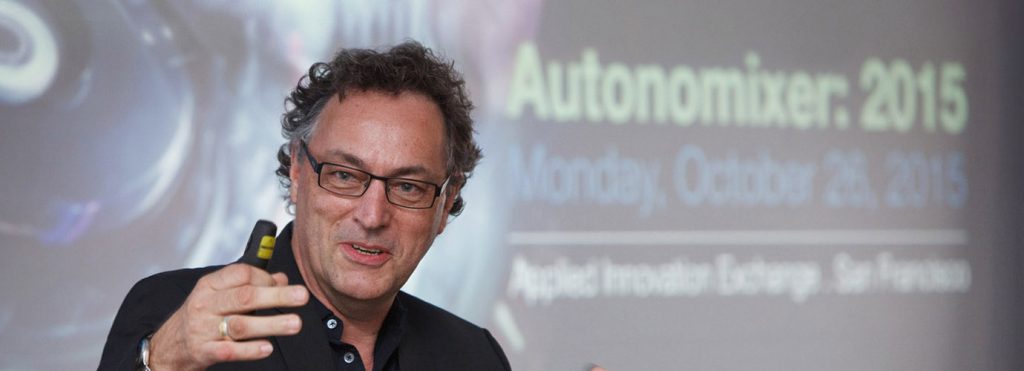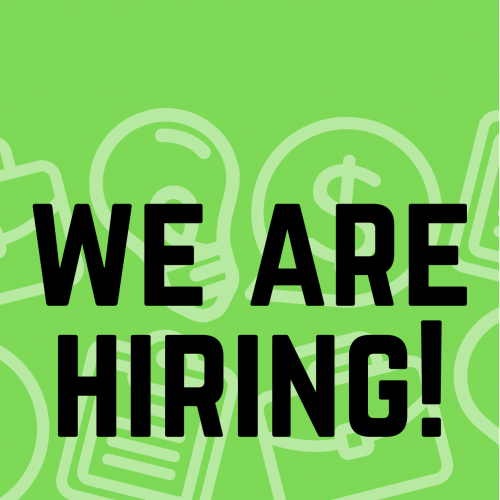
Futurist Gerd Leonhard’s latest book, Technology vs Humanity, explores the future of humanity in light of exponential technological advancements.
In the first part of our interview with Gerd, we talked about the implications of the rise of technology in general. In the second part of the interview, we discussed how business owners and entrepreneurs can approach innovation in the most human-centric way possible. In this third and final part, Gerd talks about catalysts of change and how we can get involved in preserving humanity…
Incidents to catalyse change
“Ultimately we will have incidents that will catalyse us to take action” says Gerd. “For example, we may very well have military robots that can shoot people without human interference. Once we have a couple of incidents where a couple thousand people get killed by such a machine, that’s when we’re going to think about how we’re going to administer [these machines] and who has control over them.
“I’m afraid that we’re going to have incidents before we have solutions” says Gerd, who believes the recent Brexit vote and election of Donald Trump are “response[s] to this complete insecurity about what the hell is going on. I think it is a major challenge for us to get on the same page because, I’m afraid, if we don’t… then they will be as or more powerful than nuclear weapons. We have strict rules for nuclear weapons, we have strict proliferation agreements and treaties that have been built very painfully over the last 50 years and we’ll need the same for new technologies.”
“I think we’re going to have a change in politicians” says Gerd. “I think we’re going to get a lot of younger people in, and lot more women. The cities are going to have the power of change because a lot of these things are happening in cities first. I think that this is all good momentum, as long as we don’t forget that we really only have the next 5-10 years to get our foot in the door.”
How can we protect humanity?
Gerd believes that the more we discuss the potential effects of new technologies, the better. “Then it gets to be a mainstream conversation. Right now it is not [mainstream] and right now the conversation is about making more money using technology. That is a conversation that can not end because at a certain point you have to make money. [But] publishing about it, writing about it, is very important.
“[We also should be] creating companies that are not based on the same principle as the first wave of the internet companies, that [were meant to] empower us but that ended up with us empowering them… But I think these days, any company that isn’t qualified to be on ‘team human’ (this term that comes from Douglas Rushkoff), I think that is a very bad company to invest in.
“The other thing of course, that is happening, is that people are pulling out their money from these sort of companies. I think it’s all going to come together just fine, as long as we keep putting it on the agenda and asking the politicians to start discussing what really matters. In the end, it’s not about economics, it’s about human happiness.”
The role of entertainment in change
Gerd mentions the TV show Black Mirror as a form of entertainment that can really help bring home the issues we’re facing in an increasingly more technological society. However, most of this kind of entertainment is not quite so helpful…
Gerd feels that Black Mirror “has a particular angle that feels very real. It’s kind of like the movies Her and Bladerunner that are both entertaining but utterly real in the sense that I’ve seen [some of these things] already happening. [But] I think if we’re looking at 98% of all the other science fiction television stuff, that’s all just Hollywood fear mongering. I think that’s okay for entertainment, [but] I think it really breeds fear in people.”
While fear is fine for entertainment, Gerd says “you can not proceed into the future when you have fear of technology, because what happens is you’re either totally excited about it, you don’t care about it or you’re totally fearful. You certainly couldn’t ask the American, UK, or European public for that matter, how far we should go with AI [because] nobody would understand it. These films are distorting our view and therefore we should leave them where they are, which is entertainment, and not take them as a pointer towards the future.”
It’s not too late to make a change
In the music business, Gerd says, “you know it’s too late to do anything. People don’t buy music anymore. Well, they’re buying music, but they’re buying it on Spotify and we can’t go back on that.”
Unlike the music industry, Gerd believes we still have time to figure out ethical and moral guidelines around how we advance technology.
“There are already examples where a computer can actually do what I am doing” says Gerd. “Now a computer can simulate and play golf.” However, Gerd believes we still have 5 years or so until technology advances so far that it can pose a threat to humanity, and so now is the time to start thinking about our responsibilities.
“If big companies in China and the Silicon Valley, for example, have control over the responsibilities of technology innovators” Gerd says, “I think that is a very bad idea, because it’s primarily the military and investors who would benefit and that’s a scary thought. What if we invent a way of solving Alzheimer’s or diabetes? Should [the cures] be purchased or should they be free? I have to say, I think they should be free, but if they’re free then it’s not capitalism so there’s a lot of issues that we need to struggle with.”
Should we be frightened, or scared?
“I think it’s good to have a little bit of fear” says Gerd, “you have to be a little scared to stay realistic… it is really worrisome if we have weapons that can really kill without human supervision, and drones that can make their own decisions. But at the same time the possibilities of technology are really awesome. Abundant energy, ending diseases, providing free education, free content. A lot of these things are really powerful.”
Gerd sees a future of “humanity on top of technology. That’s what we have to strive for. Companies now need to come to the table and say ‘how do we make this product actually human worthy?’ Not ‘how does it make money?’ or ‘how does it solve a commercial problem? It has to have a larger story. It has to have a purpose and has to serve us rather than the other way around.”
You can buy Technology vs. Humanity on Amazon.
If you’re working on products of the future and would like to collaborate, get in touch with Simpleweb today.
Image: futuristgerd.com
If you’d like to discuss your startup or project, get in touch with Simpleweb today.



